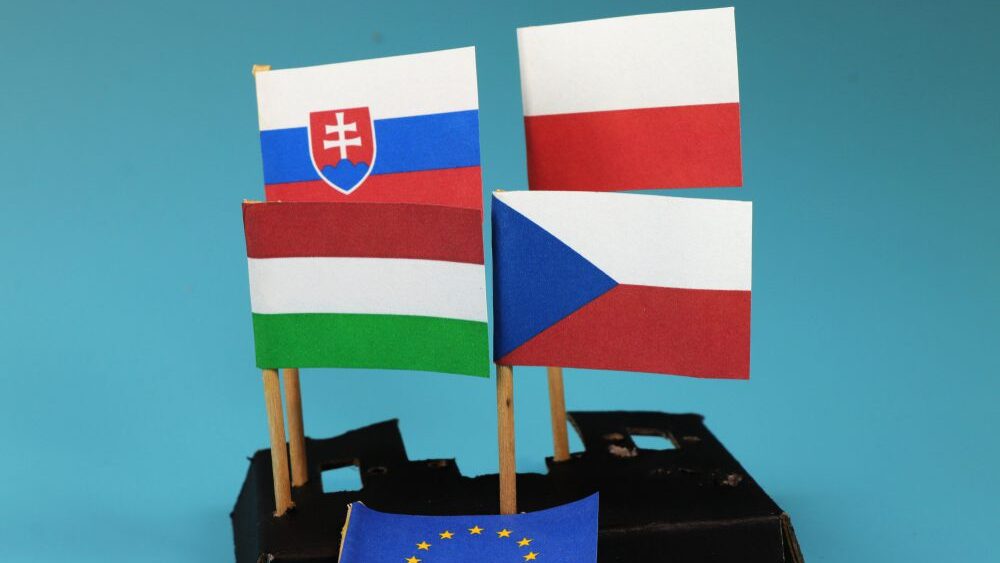
“You have to understand: if Israel no longer exists, Europe will be next. They will comb through Europe. That’s what they’re after. And then the United States,” warned Israeli President Isaac Herzog of the threat posed by Islamist terrorist groups such as Hamas and the Islamic State (ISIS). In an interview with the German publication Die Welt, he said there is a civilisational conflict between those who believe in democracy, freedom, a desire for peace, and “those who celebrate hate, the beheading of children, the kidnapping of pregnant women, the taking hostage of grandparents.”
"This is a message that must be heard loud and clear. When they say 'from the river to the sea', they mean no Jews."
— Office of the President of Israel (@IsraelPresident) October 31, 2023
President of Israel @Isaac_Herzog speaks about the rising wave of antisemitism around the world: pic.twitter.com/JZklAMHN1L
The militants of the Palestinian terror group Hamas raided Israel and killed 1,400 civilians on October 7th. Israel launched a retaliatory attack against Hamas in Gaza, which has, according to the Hamas-run Ministry of Health, the only official source for Gaza casualties, claimed the lives of 8,500 people.
The conflict has indeed reverberated around the world, including Europe, where thousands of pro-Palestinian demonstrators have taken to the streets, antisemitic attacks are on the rise, and terrorism warning levels have been heightened. “A large part of this antisemitic wave comes from Muslim communities,” Isaac Herzog said, adding that a lot of these clashes and protests are being propagated and funded by Iran, Israel’s arch-enemy.
The president praised his French counterpart Emmanuel Macron’s proposed initiative of building an international coalition against Hamas, like the one against ISIS. Reacting to criticism of Israel bombarding Gaza, Herzog reiterated his country’s right to defend itself against an enemy that wishes to annihilate Israel:
We have to fight. Where do we fight? Wherever they launch their rockets and send their terrorists from. We have to go there and destroy these places. There are civilians in these places, whom we told weeks ago to move south.
While most member states of the European Union all lined up to supply Ukraine with arms against the ongoing invasion by Russia, there has been a huge dispute within Europe and the EU institutions about Israel’s right to defend itself and whether Gaza should receive funding from the European Union. While mainly leftist parties around Europe have condemned Israel for its treatment of Palestinians, Central European nations have given their support to Israel.
This was made clear after Austria, Croatia, the Czech Republic, and Hungary were the only EU nations that opposed a UN resolution last week—fifteen EU members abstained—which called for an immediate truce and a cessation of hostilities between Israel and Hamas. Czech Deputy Foreign Minister Jiří Kozák explained his country’s stance by saying that
the UN General Assembly completely ignored the brutal rampage of Hamas or the fact that there are still two hundred people, including children, kidnapped in Gaza, and focused only on what is happening in Gaza.
A spokesman for the Hungarian Foreign Ministry also cited the resolution’s failure to condemn the Hamas terror attack or emphasise Israel’s right to defend itself.
Central European nations have historically had a strong relationship with Israel. Both the Czech Republic and Hungary have talked of potentially moving their embassies from Tel Aviv to Jerusalem, after the United States—under former President Donald Trump—recognised Jerusalem as the capital of Israel. Czech Prime Minister Petr Fiala spoke of this intention in the aftermath of Hamas’ terror attack to show support for Israel. A move would spark international outcry, as Palestinians want East Jerusalem as the capital of a future Palestinian state.
In another sign of support, the Hungarian government was one of a few governments in Europe in recent weeks to ban pro-Palestinian rallies, with Prime Minister Viktor Orbán saying there should be no rallies supporting terrorist organisations, and that all Hungarian citizens should feel safe, regardless of their faith or origin. Hungary has one of the largest Jewish communities in Europe—estimated between 60,000-110,000—and the conservative government has implemented a zero-tolerance policy on antisemitism. Although Western politicians regularly accuse the government and Hungarians of being antisemitic, studies—like the one by Tel Aviv University last year—regularly find Hungary to be one of the safest European countries for Jews.
In its analysis from 2018, the German Institute for International and Security Affairs explained the reason behind the close ties between Israel and the V4 cooperation of Central European states:
There are many parallels in how the V4 and Israeli politicians define threats to national security as well as the necessary means to defend fundamental values. Most of all, they share a sense of [the] importance of the nation. Since the V4 have experienced Soviet domination, they tend to empathise with Israel’s struggle for survival and security.
According to the analysis, “V4 states’ leaders have aligned themselves with Israeli viewpoints on issues such as migration, security, and threat perceptions.”
In his opinion piece for Foreign Policy magazine, Benjamin Haddad, a member of the French National Assembly, writes that not only Central Europe but Europeans as a whole have faced terror attacks in the last few years, and “have increasingly associated Israel as a country facing similar challenges, the canary in the coalmine for European democracies.”
